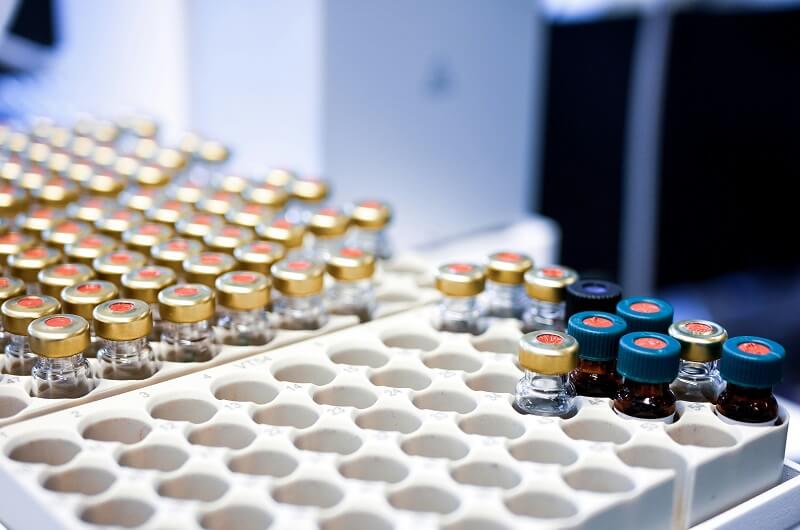Hydroxychloroquine for Malaria: What You Need to Know

Malaria remains one of the world’s most serious infectious diseases, especially in tropical and subtropical regions. It is caused by Plasmodium parasites and transmitted through the bite of infected Anopheles mosquitoes. Over the decades, a variety of antimalarial medications have been developed, including hydroxychloroquine, a drug that has served as both a treatment and preventive option in certain cases.
In this article, we’ll explore what hydroxychloroquine is, its role in malaria treatment, its effectiveness, current recommendations, and precautions you should know before using it.
What Is Hydroxychloroquine?
Hydroxychloroquine(Hcqs 200) is a medication originally derived from chloroquine and belongs to the class of 4-aminoquinoline compounds. It was first developed as an antimalarial drug, but today it is more commonly used for treating autoimmune conditions such as rheumatoid arthritis, systemic lupus erythematosus (SLE), and dermatological conditions.
Despite its expanded use, hydroxychloroquine retains antimalarial properties, particularly against certain types of malaria.
How Does Hydroxychloroquine Work Against Malaria?
Hydroxychloroquine works by interfering with the parasite’s ability to digest hemoglobin in red blood cells. The Plasmodium parasite feeds on hemoglobin, and during digestion, it releases toxic byproducts. Hydroxychloroquine prevents the parasite from neutralizing these toxins, ultimately leading to its death. You can also buy hydroxychloroquine online from dosepharmacy.
This mechanism is similar to that of chloroquine, but hydroxychloroquine is considered less toxic and better tolerated in long-term use, making it suitable for patients who need chronic treatment.
Is Hydroxychloroquine Still Used for Malaria?
Yes—but with limitations.
Hydroxychloroquine is only effective against certain strains of malaria, particularly Plasmodium vivax, Plasmodium ovale, and some sensitive strains of Plasmodium falciparum. However, its use has declined significantly in recent years due to:
-
Widespread resistance, especially in P. falciparum strains
-
Better alternatives like artemisinin-based combination therapies (ACTs)
-
Guideline updates from WHO and CDC recommending other drugs as first-line options
So, while hydroxychloroquine can still be used, it is often not the first choice in malaria-endemic areas.
When Is Hydroxychloroquine Used for Malaria?
Hydroxychloroquine may be considered in the following cases:
1. Travel to Regions with Chloroquine-Sensitive Malaria
In regions where chloroquine-sensitive P. vivax and P. falciparum are prevalent (e.g., Central America west of the Panama Canal, parts of the Caribbean), hydroxychloroquine may be prescribed for:
-
Malaria prophylaxis (prevention)
-
Treatment of uncomplicated malaria
2. Patients Who Cannot Tolerate Other Antimalarials
For those who cannot tolerate mefloquine, atovaquone-proguanil, or doxycycline, hydroxychloroquine might be an alternative, depending on the local resistance pattern.
3. Combination with Other Medications
It may also be used in combination therapies where resistance is not a concern, though this is rare.
Dosage for Malaria Prevention and Treatment
🔹 For Prevention (Prophylaxis)
-
Adult dose: 400 mg (310 mg base) once weekly, starting 1–2 weeks before travel, continued weekly during the stay, and for 4 weeks after leaving the area.
🔹 For Treatment (Uncomplicated Malaria)
-
Initial dose: 800 mg
-
Followed by: 400 mg at 6, 24, and 48 hours after the first dose
-
Total dose: 2 grams over 3 days
Note: Dosing may differ for children and should be adjusted by body weight.
Hydroxychloroquine vs. Chloroquine
Both hydroxychloroquine and chloroquine are structurally similar and share the same mechanism of action. However:
-
Hydroxychloroquine is less toxic and better tolerated, especially in long-term use
-
Chloroquine is considered slightly more potent for malaria, but resistance to it is more common
-
Hydroxychloroquine is more commonly used in autoimmune conditions today
In many cases, hydroxychloroquine can be substituted for chloroquine, provided the strain of malaria is susceptible.
Effectiveness of Hydroxychloroquine
Hydroxychloroquine is effective against chloroquine-sensitive malaria parasites, but its use has become limited due to:
-
Resistance in Africa, Asia, and South America
-
Better, faster-acting medications now available
-
Increased awareness of regional resistance patterns
Hence, healthcare professionals often reserve hydroxychloroquine for specific regions or circumstances where drug resistance is not an issue.
Side Effects and Precautions
Although hydroxychloroquine is generally safe, it may cause side effects, particularly with long-term use.
🔸 Common Side Effects
-
Nausea
-
Vomiting
-
Diarrhea
-
Headache
-
Dizziness
🔸 Serious (But Rare) Side Effects
-
Retinal damage (retinopathy) – requires regular eye exams
-
Heart rhythm disturbances (QT prolongation)
-
Low blood sugar
-
Allergic reactions
Precautions:
-
Avoid in individuals with pre-existing retinal or visual field problems
-
Caution in patients with cardiac conduction disorders
-
Should not be used in people with glucose-6-phosphate dehydrogenase (G6PD) deficiency without medical supervision
-
Not typically recommended in pregnancy, unless benefits outweigh risks
Hydroxychloroquine and Malaria in Pregnancy
Malaria during pregnancy can be life-threatening. Hydroxychloroquine is sometimes used in pregnancy for chloroquine-sensitive malaria, as it is considered relatively safe in pregnancy. However, other antimalarials may be preferred based on resistance patterns and safety profiles.
Always consult with a healthcare provider before taking any medication during pregnancy.
Who Should Not Take Hydroxychloroquine for Malaria?
Avoid hydroxychloroquine if you:
-
Have known allergy to the drug
-
Are traveling to a region with chloroquine-resistant malaria
-
Have a history of eye diseases, arrhythmias, or liver disease
-
Are taking drugs that prolong the QT interval (like certain antibiotics or antidepressants)
Alternatives to Hydroxychloroquine
If hydroxychloroquine is not suitable, the following are commonly used alternatives:
-
Atovaquone-proguanil (Malarone) – popular for travel
-
Doxycycline – cost-effective and broad protection
-
Mefloquine – weekly dose, but has neuropsychiatric side effects
-
Artemisinin-based combination therapies (ACTs) – first-line for resistant malaria
Choosing the right drug depends on your destination, health status, and drug tolerability.
Hydroxychloroquine continues to have a place in the fight against malaria, especially in areas where chloroquine-sensitive strains are present. While its role has diminished due to rising drug resistance and the emergence of newer medications, it can still be effective when used appropriately.
If you’re planning to travel to a malaria-prone region, consult with a healthcare provider well in advance. They can assess the risk, review resistance data, and help determine whether hydroxychloroquine or another antimalarial is best for you.
Remember: Malaria is preventable and treatable—but only when the right medication is used, in the right place, at the right time.







